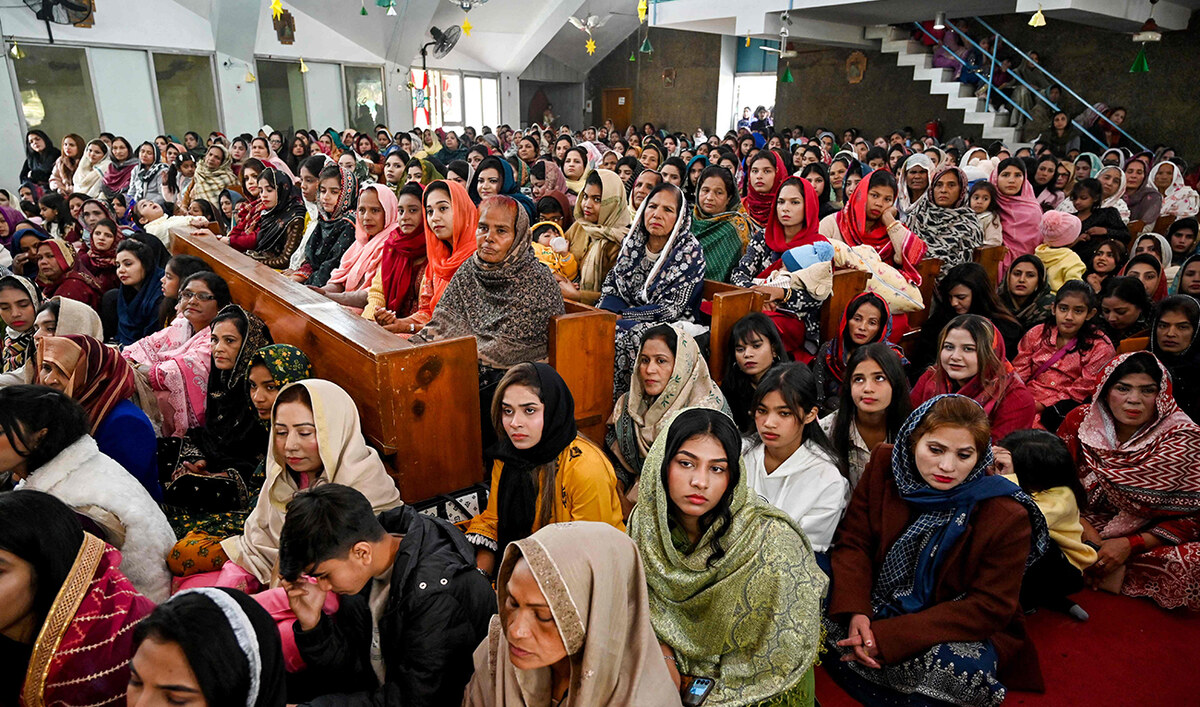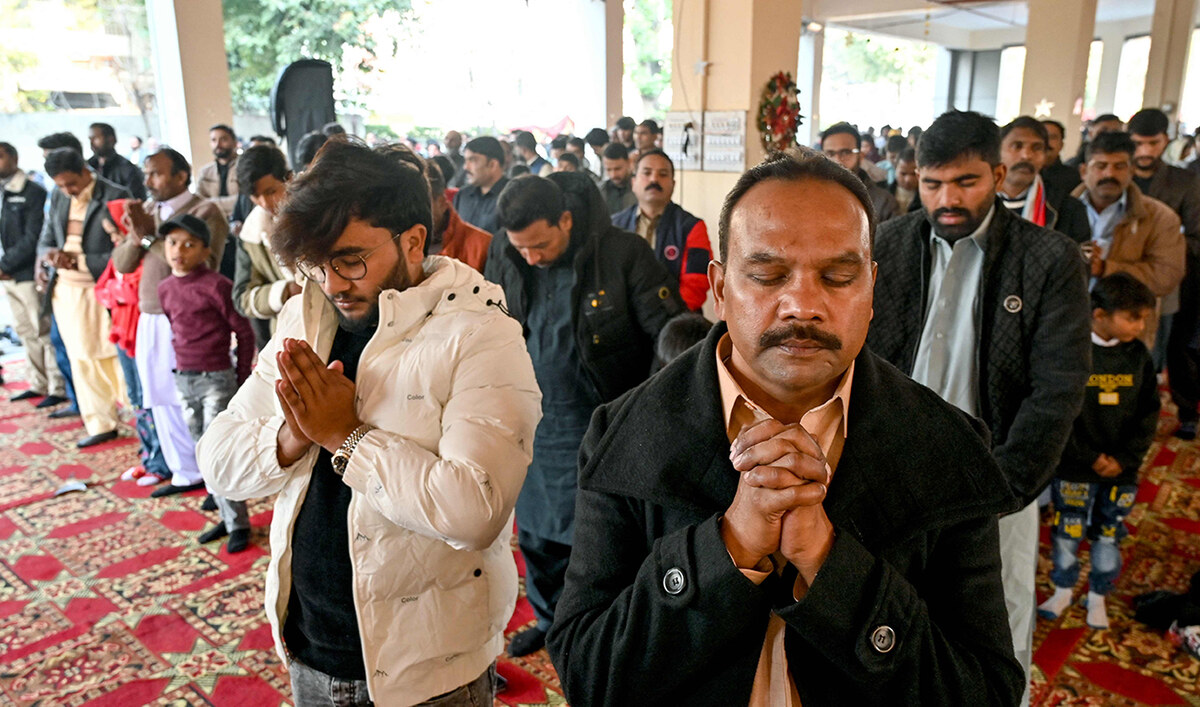KARACHI: Thousands of Pakistanis in the southern port city of Karachi on Sunday marched to demand peace in Palestine, calling for an immediate ceasefire in Gaza and praising South Africa for attempting to hold Israel accountable for genocide in the International Court of Justice.
Israel’s war on Gaza has spanned over 100 days now and has killed over 24,000 Palestinians, many among them women and children. Israel’s relentless airstrikes have forced millions to migrate from northern Gaza to the south, as UN agencies warn against the outbreak of diseases and starvation in the territory.
On Saturday, thousands of pro-Palestine protesters gathered in front of the White House, London’s central streets, and other parts of the world to mark a global day of protests against Israel.
In Karachi, the right-wing Jamaat-e-Islami party organized a massive protest titled: ‘Gaza Million March’ on Sunday, which was attended by thousands of men, women, and children. Marchers walked from Karachi Foods at the city’s busy Shahrah-e-Faisal road to the Fauzia Wahab Flyover, shouting slogans denouncing Israel.
“Hats off to South Africa, which, in the name of humanity, has registered a case against Israel,” JI’s Karachi chief Naeem ur Rehman said at the rally. “The US and Israel are worried and unable to respond to the South African questions.”
Rehman said Israel’s war on Gaza had sparked a humanitarian crisis, which is why even the masses in the US, a staunch ally of Tel Aviv, were supporting Palestinians.
Rehman said his party will not forget the plight of the Palestinians and will continue to protest despite its ongoing election campaign for next month’s national polls.
“Israel has been bombing Gaza for over three months now, and all children are dying; there are many martyred,” Nishal Ameen, a student who partook in the rally, told Arab News.
“Women are giving birth without anesthesia, surgeries are being performed (without it),” she said, urging all to boycott Israeli goods in protest.
Emmad Usman, a software engineer who attended the march with his daughters, said enough was not being done to stop Israel from carrying out a massacre in Gaza.
“If it had happened somewhere else, the world’s map would have changed,” Usman told Arab News. “We need to unite against the brutality.”
Asma Syed, another student, said Palestinians have been subjected to genocide for over 100 days now.
“They are on the mission of cleaning Palestinians from the land of Palestine,” Syed told Arab News, adding that she had joined the march to raise her voice against the injustice.
She said the least people could do was pray for the people of Palestine and boycott the brands that were supporting Israel.
“We shouldn’t contribute to genocide by buying their products, we should not stop talking about Palestine,” Syed said.
Thousands rally in Pakistan’s Karachi against Gaza ‘genocide,’ demand ceasefire
https://arab.news/jpjmc
Thousands rally in Pakistan’s Karachi against Gaza ‘genocide,’ demand ceasefire

- Pakistani right-wing political party Jamaat-e-Islami organizes massive rally attended by men, women and children from all walks of life
- Israel’s war on Gaza has lasted for over 100 days and resulted in the deaths of over 24,000 Palestinian men, women and children























